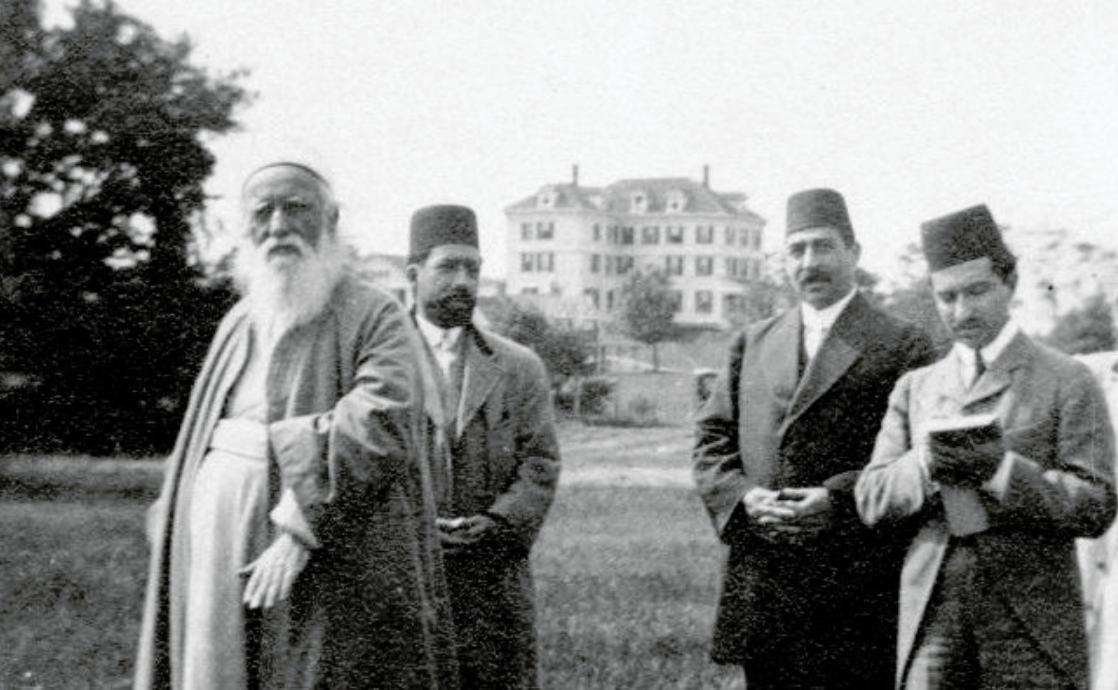The Bahá’í Faith, a monotheistic religion that emerged in the 19th century, has witnessed numerous pivotal figures whose lives and teachings resonate profoundly within its doctrines. One such luminary is Abdu’l-Bahá, who succeeded his father, Bahá’u’lláh, the founder of the faith. Abdu’l-Bahá’s journey is emblematic of the intersection between divine revelation and human experience, rendered particularly compelling by the myriad accounts of those who encountered him directly. This exploration aims to elucidate the enigmatic persona of Abdu’l-Bahá, illuminating the profound impact he had on those who crossed his path.
Abdu’l-Bahá’s early life in Persia, marked by hardship and displacement, set a stage that could only be described as a crucible of spiritual fortitude. The son of Bahá’u’lláh, he grew up amidst the trials of a religious leader, enduring the oppressive constraints imposed by the ruling powers of the time. This backdrop is essential in understanding the complexity of his character; he emerged not just as a religious figure, but as a paragon of resilience and compassion. His multifaceted persona can be likened to a prism—reflecting myriad colors of love, wisdom, and humility, each hue captivating those in its presence.
Those who met Abdu’l-Bahá often recounted experiences that transcended mere interactions; they described encounters suffused with an almost palpable aura of divinity. Visitors remarked on the warm glow of his countenance, which seemed to embody the essence of his teachings. The impression left by his physical presence was potent; it is said that he possessed an ineffable ability to engage individuals with a disarming openness. This approachability allowed him to reach hearts that were often shielded by the skepticism of modernity, creating an intimate connection that defied conventional barriers.
For many, meeting Abdu’l-Bahá was akin to stepping into a sanctified space where profound truths were unveiled. His conversations often traversed the realms of theology, philosophy, and practical guidance, inviting seekers to explore the vastness of their own spiritual potential. One can draw an intriguing metaphor here; his discussions were not merely lectures but rather an intricate tapestry woven with threads of inquiry, understanding, and revelation. Each dialogue was unique, tailored to the intellectual and emotional landscape of his interlocutuors, thereby magnifying the personal relevance of his words.
Abdu’l-Bahá’s travels in the West, particularly during his journey to Europe and America, brought forth a cultural encounter that was pivotal for the dissemination of Bahá’í principles. His eloquence and charisma captivated diverse audiences, leaving indelible impressions on luminaries and laypersons alike. One poignant account comes from a meeting with the American author and philosopher, Ralph Waldo Emerson. The thematic intertextuality between Emerson’s transcendental philosophies and Abdu’l-Bahá’s teachings fostered an environment ripe for dialogue, enriching both perspectives. Herein lies a testament to Abdu’l-Bahá’s ability to bridge disparate paradigms—a mirror reflecting the essential unity of purpose that defines humanity.
Abdu’l-Bahá also embodied the ideals of service and humility. His selfless devotion to the betterment of society was vividly illustrated through acts of kindness and outreach. He believed that true leadership was underpinned by servitude rather than authority. This unconventional paradigm was as curious as it was revolutionary, challenging societal norms that often conflate status with power. His life exemplified the notion that the might of a person’s character emerges not through dominion, but through the nurturing of a compassionate spirit. This perspective profoundly resonated with individuals from various walks of life, inspiring them to reassess their own roles within the social fabric.
Moreover, Abdu’l-Bahá’s teachings on interfaith dialogue and the importance of unity amidst diversity were revolutionary for his time. His advocacy for the need to transcend sectarian divides echoed the perennial philosophy that undergirds many spiritual traditions: the recognition of a singular truth manifesting in multiple forms. In this way, his presence served as a beacon, illuminating the path toward communal harmony. Those who met him often walked away with a renewed sense of purpose, compelled to contribute positively to their communities, thereby perpetuating the legacy of oneness he espoused.
In recounting his legacy, it becomes evident that Abdu’l-Bahá was a formidable architect of spiritual discourse, a custodian of human dignity, and a catalyst for transformation. He inspired a multitude, enabling them to glimpse the potential within themselves—a reflection of the dignity and sanctity imbued within all humankind. The profound mysteries of his persona—the seemingly simple yet infinitely complex essence of his being—continue to invoke curiosity and admiration. It is this inherent allure and enigmatic nature that encapsulate the intrigue surrounding Abdu’l-Bahá’s life and teachings.
In conclusion, the encounters with Abdu’l-Bahá transcended the ordinary and emerged as transformative experiences for those who sought his counsel or simply basked in his presence. He embodied a synthesis of wisdom, compassion, and humility, fostering connections that transcended time and cultural barriers. The impact of his teaching remains a clarion call for an unfolding narrative—a narrative of unity, service, and love—wherein lies the core of Bahá’í teachings. To encounter Abdu’l-Bahá was to engage with a mighty mystery, a celestial compass guiding individuals toward the realization of their higher selves in a fragmented world.
